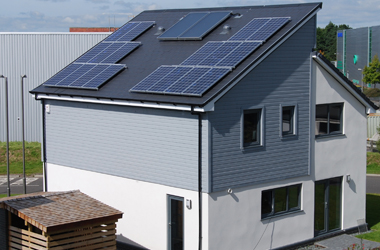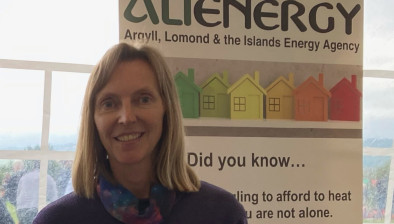All new homes to use renewable or low carbon heating from 2024
New regulations will be developed to ensure all new homes use renewable or low carbon heating from 2024.

This move to increase energy efficiency and reduce carbon emissions for new build homes will run alongside a £30 million investment in renewable heat projects.
Renewable and low carbon heating systems will also be phased in for non-domestic buildings given consent to build from 2024.
Energy minister Paul Wheelhouse said: “Scotland is internationally recognised for its leadership on tackling climate change and for responding to the global climate emergency by setting an ambitious target to reach ‘net zero’ emissions by 2045. We have also set a challenging interim target of achieving a 75% reduction in emissions by 2030.
“It’s becoming increasingly clear that the pace of decarbonising Scotland’s domestic and non-domestic buildings has to increase significantly to achieve those aims, and emissions from our buildings will have to fall close to zero.
“We will ensure that new homes and buildings across Scotland meet the challenge of the climate emergency, combining the action we need to take on climate change with our ambition to provide affordable, warm homes.”
The Scottish Government is also reviewing the energy standards which are included in building regulations. These will improve the energy efficiency of new buildings and include measures in support of the move to low carbon and renewable heat.
Meanwhile, homeowners will be supported to make their homes warmer and cheaper to heat by improving their energy efficiency.
A new, legally binding standard for home energy efficiency from 2024 onwards is being proposed to help tackle climate change and eradicate fuel poverty.
The Scottish Government is now seeking views from homeowners on what this standard may look like, and how they can help people meet it.
Housing minister Kevin Stewart said: “We are facing a global climate emergency and for our part, the Scottish Government is doing all we can to tackle climate change.
“That is why we are supporting homeowners to make their homes warmer and cheaper to heat. Social landlords are already making excellent progress towards their energy efficiency target and with this standard, we will help homeowners to do the same.
“By the end of 2021, we will have allocated more than £1 billion since 2009 to tackle fuel poverty and improve energy efficiency to make homes warmer and cheaper to heat.”
The consultation will be open until 26 March 2020. Responses will inform further development of the Energy Efficient Scotland programme and shape the next steps for action in owner-occupied housing.
Legally binding standards are already in progress in both social rented and privately rented homes.
Currently, 62% of homes in Scotland are owner-occupied, but only 38% of these have an Energy Performance Certificate rating of C or above.
An update to the Energy Efficient Scotland Route Map will be published in the first half of 2020, following and reflecting the ambitions and pathway set out in Scotland’s updated Climate Change Plan which is due to be published by end April 2020.







